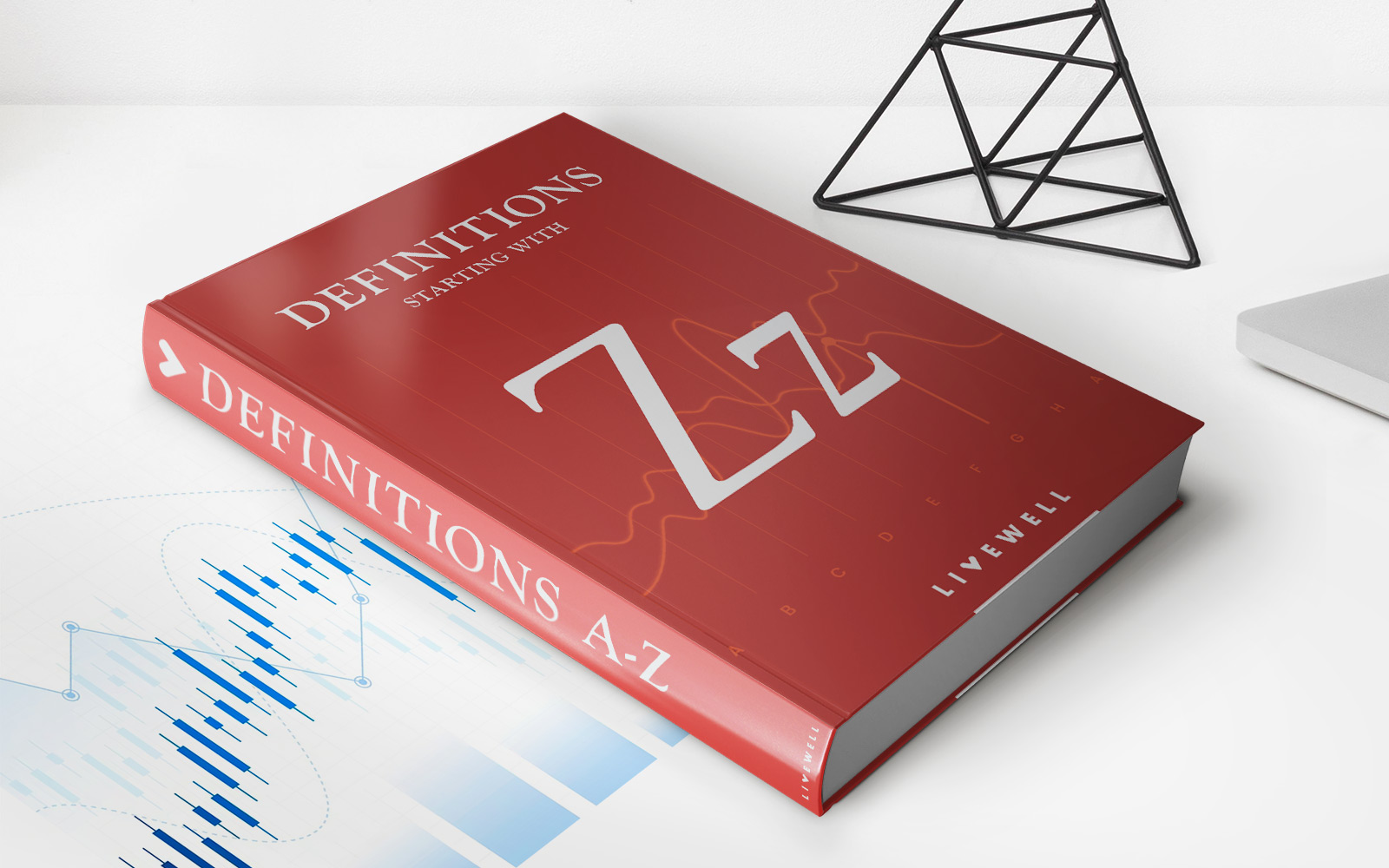

Finance
When Should I Apply For Credit Card
Modified: January 7, 2024
Find out the best time to apply for a credit card and manage your finances effectively. Discover expert tips and advice on credit card applications and financial planning.
(Many of the links in this article redirect to a specific reviewed product. Your purchase of these products through affiliate links helps to generate commission for LiveWell, at no extra cost. Learn more)
Table of Contents
Introduction
Applying for a credit card can be a crucial financial decision, as it can impact your financial future and provide you with numerous benefits and opportunities. However, it is essential to approach the process with careful consideration and knowledge of the different factors involved. From understanding the various credit card options available to assessing your financial situation, this article will guide you through the decision-making process of when to apply for a credit card.
Credit cards have become an essential financial tool for individuals around the world. They offer convenience, security, and the ability to make purchases online or in-store without carrying cash. Additionally, credit cards provide access to various rewards, discounts, and cashback programs, making them an attractive option for many consumers.
Before diving into the process of applying for a credit card, it’s crucial to understand how credit cards work and the potential advantages and drawbacks they can bring. Understanding the fundamentals will help you make an informed decision and choose a credit card that aligns with your financial goals and lifestyle.
One important aspect to consider before applying for a credit card is building a solid credit history. Lenders assess an individual’s creditworthiness based on their credit history, which consists of information about their past borrowing and repayment habits. Establishing a positive credit history is vital, as it can affect your ability to secure loans, rent an apartment, or even land a job.
Assessing your financial situation is another critical step in determining whether it’s the right time for you to apply for a credit card. Consider factors such as your income, expenses, and existing debt to evaluate your ability to manage credit responsibly. It’s essential to ensure that you have a stable financial foundation before taking on additional credit obligations.
Once you have evaluated your credit history and financial situation, you can proceed to the application process. Understanding the steps involved in applying for a credit card, as well as the necessary documentation and requirements, will streamline the process and increase your chances of approval.
Understanding Credit Cards
Before diving into the world of credit cards, it’s essential to have a solid understanding of how they work and the key concepts associated with them.
A credit card is a plastic card issued by a financial institution that allows users to borrow money to make purchases. However, unlike a debit card, where the funds are withdrawn directly from your bank account, a credit card allows you to borrow money up to a certain credit limit, which you must repay over time, typically on a monthly basis.
When you make a purchase using a credit card, the issuing bank pays the merchant on your behalf. At the end of each billing cycle, you are required to repay the borrowed amount in full or make a minimum payment, which is a percentage of the outstanding balance.
It’s crucial to understand the concept of interest rates associated with credit cards. If you don’t pay your balance in full by the due date, the remaining balance is subject to interest charges, usually at a high annual percentage rate (APR). This interest can quickly accumulate and lead to significant debt if not managed responsibly.
Credit cards also come with various fees and charges that you need to be aware of. Common fees include an annual fee, late payment fees, cash advance fees, foreign transaction fees, and balance transfer fees. Make sure to read the terms and conditions of the credit card agreement to understand the fees associated with the card you’re considering.
Another important aspect to understand is the credit utilization ratio. This ratio represents the amount of credit you have utilized compared to the total credit available to you. It is advisable to keep your credit utilization ratio below 30% to maintain a good credit score. Utilizing a higher percentage of your available credit limit can negatively impact your creditworthiness and potentially limit your ability to secure future credit.
Finally, credit cards often come with various rewards, such as cashback, travel rewards, or points that can be redeemed for goods or services. These rewards programs vary widely, so it’s essential to compare different credit cards to find one that aligns with your preferences and spending habits.
By understanding these fundamental concepts, you can navigate the world of credit cards more confidently and make informed decisions when selecting and using your credit card.
Factors to Consider Before Applying
Before diving into the credit card application process, it’s important to consider several factors to ensure that you choose the right credit card for your needs and financial situation. Here are some key factors to consider:
- Credit Score: Your credit score plays a crucial role in determining your eligibility for a credit card and the interest rate you may be offered. A higher credit score can help you qualify for better credit card options with lower interest rates and more favorable terms. It’s recommended to check your credit score before applying to understand where you stand.
- Spending Habits: Evaluate your spending habits and determine how you plan to use your credit card. If you tend to make large purchases or travel frequently, a credit card with travel rewards or cashback programs may be more beneficial. If you prefer to pay off your balance in full each month, you may want to focus on finding a card with no annual fee.
- Interest Rates and Fees: Compare the interest rates and fees associated with different credit cards. Be aware of introductory rates that may increase after a certain period and factor in any potential fees, such as annual fees or foreign transaction fees. Choosing a card with low-interest rates and minimal fees can save you money in the long run.
- Rewards and Benefits: Consider the rewards and benefits offered by various credit cards. Depending on your preferences, you may find cards that offer travel perks, hotel discounts, cashback on specific categories, or bonus points for certain purchases. Assess these rewards and benefits to determine which ones align with your lifestyle and spending patterns.
- Financial Discipline: Reflect on your financial discipline and ability to manage credit responsibly. If you have a history of struggling with debt or making late payments, it may be wise to choose a card with a lower credit limit or one that offers tools to help you track your spending. Building good financial habits is crucial for maintaining a healthy credit history.
By considering these factors, you can narrow down your options and find a credit card that suits your needs and aligns with your financial goals. It’s important to take your time, research different credit cards, and read the terms and conditions carefully. A well-informed decision will help you utilize your credit card effectively and avoid any potential pitfalls that could impact your financial well-being.
Building a Credit History
Building a solid credit history is essential when it comes to applying for credit cards and securing favorable terms. Lenders use your credit history to assess your creditworthiness and determine your likelihood of repaying debt.
If you have little to no credit history, there are several steps you can take to start building a positive credit history:
- Open a Bank Account: Start by opening a checking or savings account at a reputable bank. Having a bank account demonstrates financial stability and responsibility.
- Apply for a Secured Credit Card: A secured credit card requires a cash deposit as collateral, which serves as your credit limit. By using a secured credit card responsibly and making timely payments, you can establish a positive credit history.
- Become an Authorized User: If you have a family member or close friend with a credit card in good standing, you can ask them to add you as an authorized user. This allows you to build credit by piggybacking on their positive credit history.
- Pay Your Bills on Time: Consistently paying bills, such as utilities and rent, on time helps establish a positive payment history. Late payments can have a negative impact on your credit score, so always strive to make payments by the due date.
- Keep Credit Utilization Low: It’s important to keep your credit utilization ratio below 30%. This means using only a small portion of your available credit. High credit utilization suggests a higher risk to lenders, so keeping it low demonstrates responsible credit management.
- Monitor Your Credit Report Regularly: Check your credit report regularly to ensure the information is accurate and up to date. Dispute any errors or inaccuracies to prevent them from potentially affecting your credit history.
Building a credit history takes time, so be patient. It’s important to establish a history of responsible borrowing and repayment behavior. By doing so, you will be in a better position to apply for credit cards and secure more favorable terms and rewards.
Remember, maintaining good credit habits is essential. Always make payments on time, avoid carrying high balances, and only apply for credit when needed. With consistent effort and responsible credit behavior, you can establish a strong credit history and increase your chances of approval for credit cards and other forms of credit.
Assessing Your Financial Situation
Before applying for a credit card, it’s crucial to assess your financial situation to ensure that taking on additional credit is the right decision for you. Here are some key factors to consider when evaluating your financial situation:
- Income and Expenses: Take a close look at your income and expenses to understand your financial obligations. Calculate your monthly income after taxes and then subtract your essential expenses, such as housing, utilities, transportation, and groceries. This will give you a clear picture of how much disposable income you have available for credit card payments.
- Debt Load: Assess your existing debt, including student loans, car loans, and any other outstanding loans or credit card balances. Consider how adding a credit card payment would impact your overall debt load and whether you have the capacity to manage multiple debts responsibly.
- Emergency Savings: Evaluate the state of your emergency savings. It’s important to have a financial cushion to cover unexpected expenses or emergencies without relying solely on credit cards. Aim to have at least three to six months’ worth of living expenses saved in an easily accessible account to provide a safety net.
- Financial Goals: Consider your short-term and long-term financial goals. Are you saving for a down payment on a house, planning to start a business, or looking to pay off existing debts? Assessing your goals can help you align your credit card choices with your financial aspirations.
- Spending Habits: Reflect on your spending habits and your ability to use credit responsibly. Are you prone to impulsive purchases or overspending? It’s important to be honest with yourself and determine if you have the discipline to use a credit card responsibly, paying off the balance in full each month to avoid accruing high-interest charges.
- Financial Stability: Consider the stability of your income and employment. If you anticipate any upcoming changes that may impact your financial situation, such as a job change or a decrease in income, it may be wise to hold off on applying for a credit card until you have a clearer picture of your financial stability.
By assessing your financial situation, you can make an informed decision about whether applying for a credit card is the right step for you at this time. It’s important to have a realistic understanding of your financial capabilities and to prioritize financial responsibility before taking on additional credit obligations.
If after considering your financial situation, you determine that applying for a credit card is a viable option, proceed to the next steps of the application process. Remember that responsible credit card usage can help you build a positive credit history and improve your overall financial well-being.
Applying for a Credit Card
Once you have assessed your financial situation and determined that applying for a credit card aligns with your needs and goals, it’s time to proceed with the application process. Here are the key steps to follow when applying for a credit card:
- Research Available Options: Conduct thorough research to find credit cards that suit your needs and preferences. Consider factors such as interest rates, fees, rewards programs, and any specific benefits that may be appealing to you. Reading customer reviews and comparing offers will help you make an informed decision.
- Gather Required Information: Before starting the application, gather the necessary information, including your personal details (name, address, date of birth), contact information, employment details, and financial information. Having this information on hand will streamline the application process.
- Apply Online or In-person: Most credit card applications can be completed online through the issuer’s website. Alternatively, some issuers offer the option to apply in-person at a branch or over the phone. Choose the application method that is most convenient for you.
- Fill Out the Application Form: Complete the credit card application form with accurate and up-to-date information. Double-check the details to ensure there are no errors that could delay the processing of your application.
- Provide Supporting Documents: In some cases, you may be required to submit additional documents to support your application, such as proof of income or identification. Be prepared to provide these documents promptly to avoid any delays in the application process.
- Review and Submit: Before submitting your application, carefully review all the information provided. Read through the terms and conditions of the credit card agreement to fully understand the terms you are agreeing to. Once you are satisfied, submit your application.
- Wait for Approval: After submitting your application, you will typically receive a decision within a few days. Some issuers may provide instant approval or may require additional review. Be patient during this process and refrain from submitting multiple applications simultaneously, as it can negatively impact your credit score.
- Activate Your Card: If your application is approved, you will receive your credit card in the mail. Follow the instructions provided to activate the card, usually by calling a designated phone number or through the issuer’s website.
It’s important to note that each credit card issuer may have specific application requirements and processes. Make sure to familiarize yourself with their guidelines and adhere to their instructions throughout the application process.
By following these steps and proceeding with caution, you can effectively apply for a credit card and increase your chances of approval. Remember to use your credit card responsibly, make timely payments, and avoid overspending to maintain a healthy credit history and financial well-being.
Credit Card Application Process
The credit card application process is relatively straightforward, but it’s important to follow the necessary steps to ensure a smooth and successful application. Here’s a breakdown of the typical credit card application process:
- Research and Compare: Research different credit card options and compare their features, benefits, fees, and interest rates. Consider your financial goals and spending habits to find the card that best suits your needs.
- Gather Required Information: Before starting your application, gather the necessary information, including your personal details (name, address, date of birth), contact information, employment details, and financial information (income, expenses, and debts).
- Read the Terms and Conditions: Carefully review the terms and conditions associated with the credit card you wish to apply for. Understand the interest rates, fees, rewards, and any special offers or promotional periods.
- Start the Application: Begin the application process either online, by phone, or in-person at a branch, depending on the issuer’s options. Provide all the required information accurately and honestly.
- Submit the Application: Review your application thoroughly, ensuring all information is correct and complete. Submit the application using the provided method, whether it’s online submission, mailing a physical application, or delivering it in person.
- Wait for Approval: After submitting your application, the issuer will review your application and perform a credit check. The processing time may vary, but you can expect a response within a few days. Some issuers provide instant approval or denial, while others may require additional verification.
- Receive and Activate the Card: If your application is approved, you will receive the credit card in the mail. Activate your card as instructed by the issuer, typically by calling a designated phone number or activating it online.
- Read the Welcome Packet: Once your card is activated, read the welcome packet provided by the issuer. Familiarize yourself with the card’s features, payment due dates, billing cycle, and any additional terms and conditions.
- Start Using Your Card: Once you have activated your card, you can begin using it for purchases. Remember to use your credit card responsibly, keeping track of your spending and making timely payments to avoid interest charges and late fees.
- Monitor Your Statements: Regularly check your credit card statements to review your transactions, monitor your spending, and identify any unauthorized charges. If you notice any discrepancies, report them to the issuer immediately.
It’s essential to keep track of payment due dates, pay your credit card bill on time, and aim to pay off your balance in full each month to avoid accumulating high-interest charges. Responsible credit card usage will help you build a positive credit history and maintain your financial well-being.
Remember, each credit card issuer may have specific application requirements and processes, so be sure to review their guidelines and follow their instructions accordingly. By following these steps, you can successfully navigate the credit card application process and enjoy the benefits of a credit card that aligns with your needs.
Credit Card Options
When it comes to credit cards, there is a wide array of options available to cater to different financial needs and lifestyles. Understanding the different types of credit cards can help you choose the one that best suits your preferences and goals. Here are some common credit card options:
- Travel Rewards Cards: These credit cards are ideal for frequent travelers. They offer rewards, such as airline miles or hotel points, that can be redeemed for discounted or free travel expenses, including flights, hotel stays, or rental cars.
- Cashback Cards: Cashback credit cards reward you with a percentage of the amount spent on your card as cashback. The cashback can be redeemed as a statement credit or deposited into a bank account, providing a monetary benefit for your everyday purchases.
- Rewards Points Cards: Rewards points cards allow you to earn points for every purchase, which can be redeemed for a variety of rewards, such as merchandise, gift cards, or travel experiences. These cards offer flexibility in choosing the rewards that best suit your preferences.
- Balance Transfer Cards: Balance transfer credit cards are designed to help you consolidate and pay off existing high-interest credit card debt. They often come with a promotional 0% APR period, allowing you to transfer your balances and save on interest charges while tackling your debt.
- Secured Cards: Secured credit cards require a cash deposit as collateral, making them accessible for individuals with limited or damaged credit history. They can be a stepping stone towards building or improving your credit score, as responsible use is reported to credit bureaus.
- Student Cards: Student credit cards are tailored specifically for college students who are building their credit history. They often come with lower credit limits and beginner-friendly features to help young adults establish good credit habits.
- Business Cards: Business credit cards cater to entrepreneurs and small business owners. These cards offer features and rewards tailored for business expenses, such as cashback on office supplies or travel rewards for business-related trips.
Additionally, credit card options may vary based on the issuer, such as banks or credit unions. Each issuer may offer specific benefits, rewards programs, or promotional offers, so it’s essential to compare the details and choose a credit card that aligns with your financial goals and spending patterns.
Consider how you plan to use your credit card and the benefits that align with your lifestyle. If you travel frequently, a travel rewards card may be beneficial, while a cashback card may be more appealing if you prefer to receive money back on your purchases.
Ultimately, the credit card option you choose should fit your financial goals, spending habits, and ability to manage credit responsibly. Take the time to research and compare the options available to find the credit card that is the best fit for you.
Comparison Shopping
When it comes to credit cards, it’s crucial to engage in comparison shopping to find the best option that fits your financial needs and goals. Comparison shopping allows you to assess the features, benefits, fees, and terms of multiple credit cards to make an informed decision. Here are some key factors to consider when engaging in comparison shopping:
- Interest Rates: Compare the interest rates offered by different credit cards. Lower interest rates can save you money in the long run, especially if you plan to carry a balance on your card.
- Annual Fees: Some credit cards charge an annual fee for the privilege of using their card. Consider whether the benefits and rewards offered by the card outweigh the cost of the annual fee.
- Rewards Programs: Assess the rewards programs associated with each credit card. Determine if the rewards align with your spending habits and lifestyle. Consider the redemption options, such as cashback, travel rewards, or merchandise, and determine which program offers the most value for you.
- Introductory Offers: Look for any introductory offers, such as a 0% APR period on balance transfers or new purchases. These promotions can provide savings or benefits in the initial months or years of card ownership.
- Fees and Penalties: Carefully review any additional fees or penalties associated with the credit cards you are considering. These may include fees for late payments, cash advances, foreign transactions, or balance transfers. Understanding these potential fees will help you avoid any unexpected costs.
- Credit Limit: Compare the credit limits provided by different credit cards. Ensure that the credit limit aligns with your intended usage and the amount you need for your typical expenses.
- Additional Benefits: Consider any additional benefits or perks associated with the credit cards. These may include travel insurance, purchase protection, extended warranties, or access to exclusive events or airport lounges. Assess which benefits are important to you and add value to your card ownership.
- Issuer Reputation: Research the reputation and customer service of the credit card issuers. Look for reviews and ratings to determine the level of customer satisfaction and support provided by the issuer.
By thoroughly comparing credit card options based on these factors, you can narrow down your choices and find the card that best suits your needs. Make sure to read the fine print, carefully review the terms and conditions, and understand all fees and features before making a decision.
Remember, everyone’s financial needs and preferences are different, so what may be the best credit card for one person may not be the ideal choice for another. Take the time to analyze your financial situation and spending patterns to ensure that the card you select aligns with your goals and will provide you with the most value and benefits.
Reading the Fine Print
When it comes to credit cards, it’s essential to read the fine print of the terms and conditions before making a decision. The fine print contains important details and provisions that may impact your experience and financial obligations. Here are key factors to consider when reading the fine print:
- Interest Rates: Pay attention to the interest rates specified in the fine print. Understand the differences between the introductory or promotional rates and the regular rates that will apply after the initial period. Look for any variable rates that may change based on market conditions.
- Fees and Penalties: Familiarize yourself with the fees and penalties associated with the credit card. These may include annual fees, late payment fees, over-limit fees, cash advance fees, balance transfer fees, and foreign transaction fees. Make sure to understand when and under what circumstances these fees may apply.
- Rewards and Benefits: Review the terms and conditions related to the rewards and benefits offered by the card. Understand how rewards are earned, any restrictions or limitations, and how they can be redeemed. Pay attention to expiration dates or any changes the issuer may make to the rewards program.
- Grace Period and Due Date: Determine the length of the grace period, which refers to the time you have to pay your credit card bill in full without incurring interest charges. Also, note the payment due date each month and any penalties for late or missed payments.
- Balance Transfer Terms: If you’re considering a balance transfer, carefully read the fine print regarding transfer fees, promotional interest rates, and the duration of the promotional period. Understand any requirements or limitations associated with balance transfers.
- Credit Limit and Increase: Consult the fine print to know your approved credit limit. Also, understand the conditions under which the issuer may increase or decrease your credit limit and any potential impact on your credit score.
- Dispute Resolution: Review the dispute resolution process mentioned in the terms and conditions. Understand how to file a dispute for unauthorized charges or billing errors, and the steps involved in resolving such disputes.
- Changes to Terms: Be aware of the issuer’s ability to modify the terms and conditions of the credit card agreement. Understand under what circumstances and with what prior notice the issuer may make changes to interest rates, fees, rewards, or other terms.
By carefully reviewing the fine print, you can gain a clear understanding of your rights and responsibilities as a credit cardholder. Should any questions or concerns arise while reading the fine print, don’t hesitate to contact the issuer’s customer service for clarification.
It’s important to make an informed decision based on the information provided in the fine print. Understanding the terms and conditions will help you manage your credit card responsibly, avoid unnecessary fees, and maximize the benefits and rewards of your card.
Making a Decision
After researching, comparing, and carefully reviewing the various factors and terms associated with credit cards, it’s time to make a decision. Here are some key steps to help you make a well-informed decision:
- Consider Your Needs: Reflect on your financial goals, spending habits, and lifestyle. Determine which features and benefits are most important to you. For example, if you travel frequently, a travel rewards card may be the best fit, while a cashback card might be more appealing if you prefer earning money on your everyday purchases.
- Weigh the Costs and Benefits: Evaluate the overall costs and benefits of each credit card. Compare factors such as interest rates, fees, rewards programs, and any introductory offers. Consider the long-term value that each card provides and whether the benefits outweigh the costs.
- Assess Your Financial Situation: Review your financial situation and determine if you have the ability to manage a credit card responsibly. Consider your income, expenses, and existing debt. Ensure that you can make timely payments and maintain a good credit history to avoid potential financial difficulties.
- Read the Fine Print: Pay close attention to the terms and conditions outlined in the fine print. Understand the interest rates, fees, grace period, due date, rewards program details, and any other provisions that may impact your experience with the credit card. Ensure that you are comfortable with all aspects of the agreement.
- Solicit Recommendations: Seek recommendations from trusted sources, such as friends, family, or financial advisors. Their experiences and insights can provide valuable guidance and help you make a more informed decision.
- Apply with Confidence: Once you have thoroughly evaluated your options and made a decision, apply for the credit card with confidence. Use the information you have gathered to complete the application accurately, ensuring that all required documents and information are provided.
- Track and Evaluate: After you have been approved and received your credit card, monitor your usage, payments, and rewards to evaluate the card’s performance. Regularly review your statements, pay your bills on time, and assess if the card continues to meet your needs and expectations.
Remember that credit cards are powerful financial tools that come with responsibilities. Ensure that you use your credit card wisely, manage your debt effectively, and make payments on time to maintain a healthy credit history.
By carefully considering your needs, comparing the available options, and making an informed decision, you can select a credit card that aligns with your goals and enhances your financial well-being.
Conclusion
Applying for a credit card is a significant financial decision that requires careful consideration and research. By understanding credit cards, evaluating your financial situation, and comparing the available options, you can make an informed decision that aligns with your needs and goals.
Understanding how credit cards work and the various factors associated with them is crucial. It’s essential to build a solid credit history, assess your financial situation, and make sure you are financially responsible before applying. Reading the fine print and comparing credit card options will help you find one that suits your preferences and offers the most value.
When it comes to the credit card application process, gather the necessary information and provide it accurately. Submit your application and patiently wait for a response. Once approved, activate your card and start using it responsibly, making timely payments and keeping track of your transactions.
Remember that credit cards can be powerful tools when managed responsibly. Use them to build credit, earn rewards, and provide financial flexibility. But beware of overspending and accumulating debt. Keep track of your expenses, pay your bills on time, and regularly review your financial situation to ensure you maintain good financial health.
In conclusion, applying for a credit card should be a thoughtful process that considers your financial goals, spending habits, and ability to manage credit responsibly. By taking the time to assess your needs, compare options, and make informed decisions, you can find a credit card that enhances your financial well-being and supports your financial goals.














